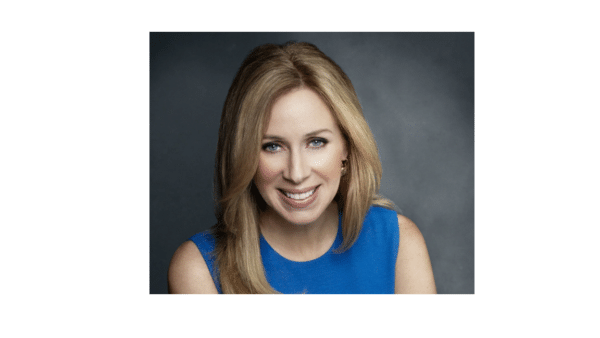Taking The Plunge

By Robert Lerose
Published July 19, 2021 By The Rutgers University Alumni Association
During Becky Quick’s tenure as assignment editor of the Daily Targum, Rutgers’ student newspaper, a flyer arrived in the newsroom with an offer to take people bungee jumping from a hot air balloon. None of the student reporters volunteered, so Quick RC’93 took on the story herself.
“You had to climb out of the basket onto a plank, walk the plank to the end, and jump down. You free fall and feel that you’re slowing down as you get to the bottom, but then you’re pulled back up in the air about three more times. I was terrified, but it was a great story. How do you pass up that opportunity?”
That curiosity fueled Quick’s ascent in journalism, from the Targum to the Wall Street Journal to her current position as an anchor of Squawk Box, CNBC’s three-hour weekday news and business program.
Growing up, Quick moved around a lot as her father worked at different companies in the oil industry. Although she was editor of her high school newspaper in Indiana, Quick was more interested in politics than in the media. She held internships with Congressman Pete Visclosky of Indiana and planned on being a legislative assistant. When her family settled in New Jersey, Quick enrolled at Rutgers as a political science major. “Rutgers had a fantastic reputation the farther away you got from New Jersey,” Quick says. “My teachers in Indiana thought I got into an Ivy League school.”
At her mother’s urging, Quick introduced herself to the editor of the Targum before her freshman classes even started and got her first assignment that day. “I had to preview the Raritan River Festival,” she says. “I went home and had a feeling of dread. I didn’t know what it was, didn’t know what to do or how to write for a college newspaper.”
That first effort led to two more assignments immediately—and she was hooked. “I got such a high. I never anticipated anything like that. I was there 40 to 60 hours a week for my entire college career. I made my greatest friends at the newspaper and learned so much,” she says. She became editor in chief her junior year and earned the Times Mirror Fellowship from the Rutgers Journalism Resources Institute.
After graduating, she spent seven years at the Wall Street Journal, covering the retail and e-commerce beats, before being tapped to help launch its digital edition in April 1996. As the international editor for the Journal’s website, Quick took the paper’s Europe and Asia news copy and combined it with international stories for the online edition. Along with a small, mostly young staff, she presented and individualized the news to cater to subscribers’ interests; it was almost like giving readers their own front page.
If a subscriber showed interest in stories on Asia, Quick and her colleagues would make sure that those stories were conveniently displayed and organized, she says. “There were no real rules at that point—we were just making it up,” she adds. “But it was the beginning of this very personalized presentation of the news. We wanted it to look just like the Wall Street Journal, but we wanted it to be customized and be what you were interested in. It was such an exciting time because we were playing with everything.”
Through a partnership between the Journal and CNBC, Quick began covering Wall Street for the network while working at the paper. She hadn’t planned on becoming a full-time television reporter but joined the network in 2001 and began co-anchoring Squawk Box in 2005.
“They put me on live TV for the first time. I had never practiced reading from a teleprompter before. I started reading, and I tripped over the words and said, ‘Blah! Roll that back—let’s do it again.’ Joe [Kernen, co-anchor of Squawk Box] starts laughing, loving it, and we’ve worked together well ever since.”
Asking probing questions that throw her guests for a loop is part of the fun for Quick, like the time she asked Warren Buffett in front of Hillary Clinton why he hadn’t chosen between Clinton and Barack Obama yet and was supporting both for president in 2008. “He looked at me like ‘What?!’ He hemmed and hawed and was a little uncomfortable, but that’s what makes things interesting,” she says.
The most rewarding part of her work on Squawk Box, she says, is asking the questions viewers are really wondering about and explaining how things work, be it the economy, COVID-19, or the GameStop frenzy. “That’s where I feel we can rise to the occasion, like we’re serving a purpose,” she says. “Those are our best days.”
Like all journalists today, Quick has to deal with the rise of disinformation and so-called fake news. “I don’t believe in alternate facts, but I do believe in differences of opinion, and that opinion can color your reality,” Quick says. “I think we have to be absolutely fact based and ready to call it out when someone is lying. At the same time, we need to put ourselves in other people’s shoes and see things from a different perspective. There’s a danger in everybody in media seeing things one way. If you put yourself in a position where you can’t see other people’s perspectives—people whom you may disagree with—that’s a little dangerous, too. Our job as journalists is to chronicle these things, and that means talking to a lot of different people with a lot of different perspectives.”
